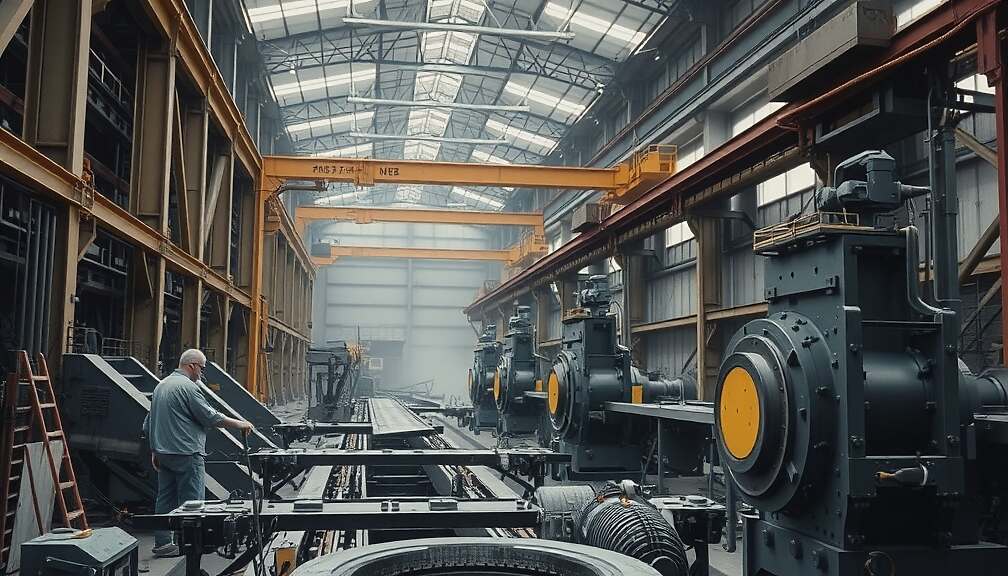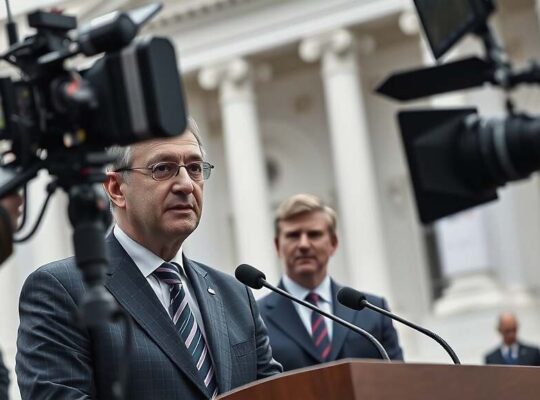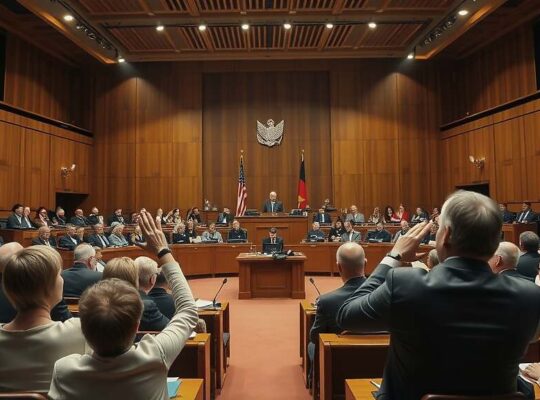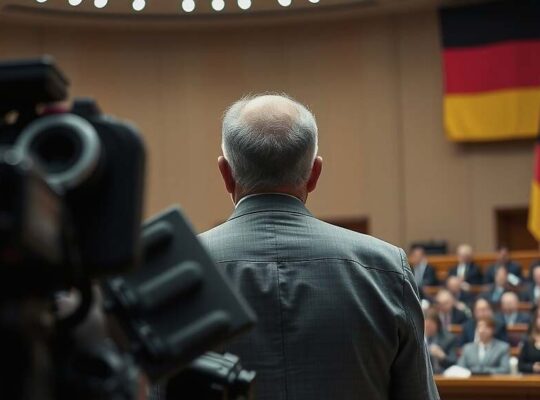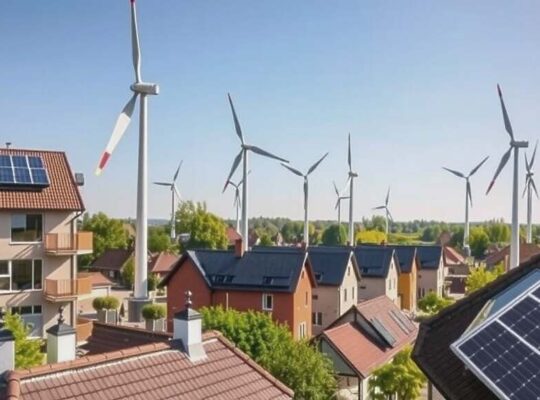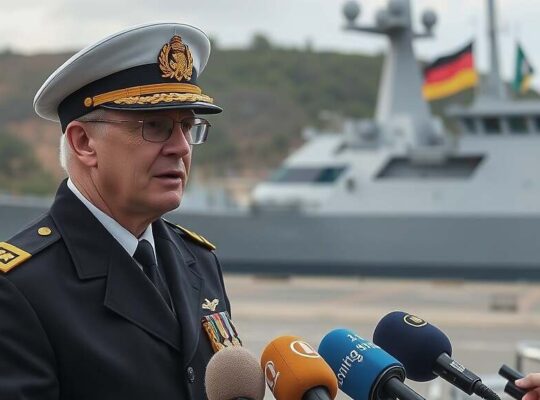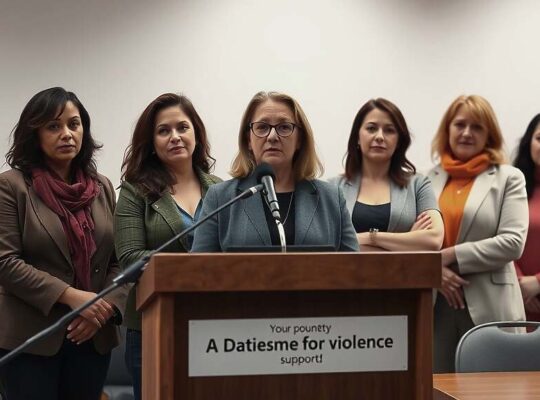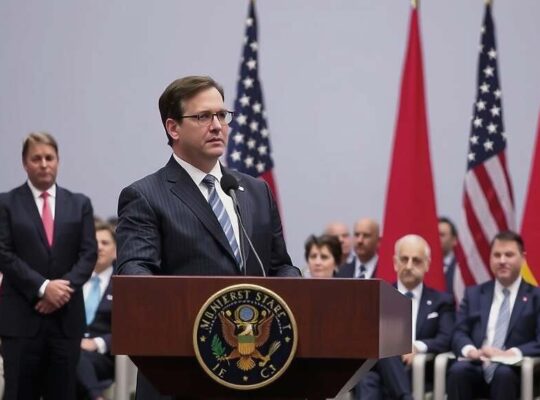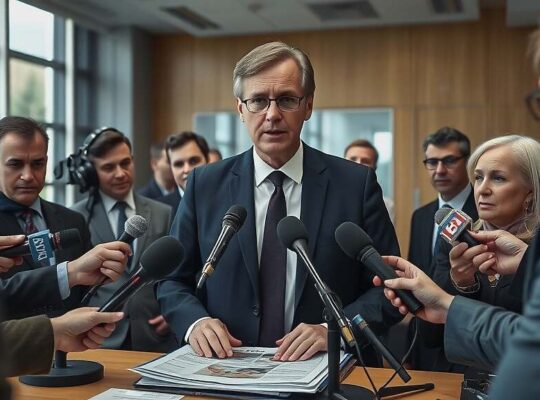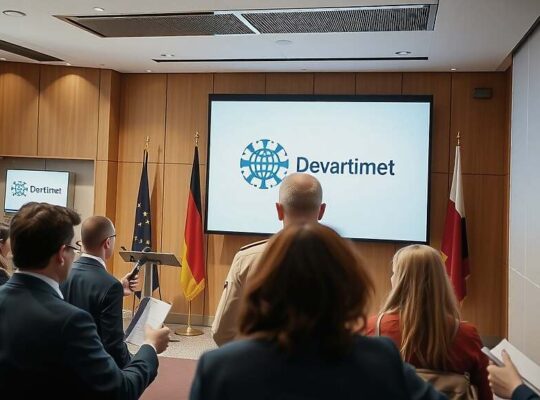The newly appointed CEO of Thyssenkrupp Steel Europe, Marie Jaroni, is issuing a stark warning ahead of a crucial summit convened by Chancellor Scholz on Thursday, demanding immediate and concrete action to safeguard the future of Germany’s steel industry. Jaroni’s appeal, articulated to the “Rheinische Post”, underscores the precarious position of a sector vital to the German economy and highlights the political pressure mounting on the government.
Jaroni welcomed Chancellor Scholz’s decision to prioritize the steel crisis, a recognition of the escalating challenges posed by a deluge of cheap steel imports, primarily from Asian nations grappling with significant overcapacity. Her primary demand centers on bolstering European trade protectionism. She explicitly called for European tariffs to be dramatically increased, arguing that the current influx of subsidized steel is undermining domestic production and threatening jobs. The European Commission’s planned measures – reducing the import quota for duty-free steel and doubling the tariff on excess imports to 50% – are deemed insufficient and require unequivocal support from the German government.
“Berlin must send a clear signal to Brussels and Paris” Jaroni asserted, emphasizing the need for a decisive commitment to these measures to demonstrate Germany’s resolve. The lack of a strong backing could jeopardize the entire initiative and leave the European steel industry vulnerable.
Beyond trade policy, Jaroni’s criticism extends to Germany’s energy costs. She stressed the urgent need for an industrial electricity price, not just for large corporations like Thyssenkrupp but critically for the numerous SMEs that comprise the backbone of the German steel sector. Failure to address this issue, Jaroni warned, will accelerate the ongoing process of deindustrialization, eroding Germany’s manufacturing base and jeopardizing its economic competitiveness. Current electricity prices, she pointed out, are double those of France and significantly higher than those in the United States, creating a crippling disadvantage.
Finally, Jaroni is advocating for the incorporation of quotas favoring domestically produced steel in public procurement contracts. The enormous sums allocated to infrastructure projects, she argues, should be leveraged to support the EU steel industry rather than inadvertently funneling taxpayer money to Asian manufacturers. This represents a pointed criticism of current procurement practices and a call to align government spending with strategic industrial policy goals.
Taking the helm of Thyssenkrupp Steel Europe on November 1st and responsible for the livelihoods of 26,000 employees, Jaroni’s demands represent a critical juncture for the German steel industry and signal a potentially contentious political battle ahead as the government grapples with competing interests and economic pressures. The outcome of Thursday’s summit will be a key indicator of the government’s commitment to protecting a vital sector and preventing further decline.


